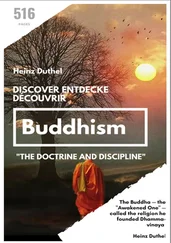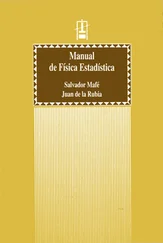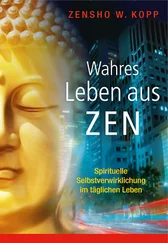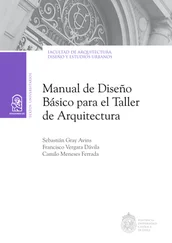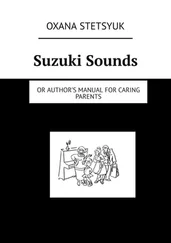Teitaro Suzuki - Manual of Zen Buddhism
Здесь есть возможность читать онлайн «Teitaro Suzuki - Manual of Zen Buddhism» весь текст электронной книги совершенно бесплатно (целиком полную версию без сокращений). В некоторых случаях можно слушать аудио, скачать через торрент в формате fb2 и присутствует краткое содержание. Жанр: Религиоведение, Религия, Руководства, на английском языке. Описание произведения, (предисловие) а так же отзывы посетителей доступны на портале библиотеки ЛибКат.
- Название:Manual of Zen Buddhism
- Автор:
- Жанр:
- Год:неизвестен
- ISBN:нет данных
- Рейтинг книги:3 / 5. Голосов: 1
-
Избранное:Добавить в избранное
- Отзывы:
-
Ваша оценка:
- 60
- 1
- 2
- 3
- 4
- 5
Manual of Zen Buddhism: краткое содержание, описание и аннотация
Предлагаем к чтению аннотацию, описание, краткое содержание или предисловие (зависит от того, что написал сам автор книги «Manual of Zen Buddhism»). Если вы не нашли необходимую информацию о книге — напишите в комментариях, мы постараемся отыскать её.
Manual of Zen Buddhism — читать онлайн бесплатно полную книгу (весь текст) целиком
Ниже представлен текст книги, разбитый по страницам. Система сохранения места последней прочитанной страницы, позволяет с удобством читать онлайн бесплатно книгу «Manual of Zen Buddhism», без необходимости каждый раз заново искать на чём Вы остановились. Поставьте закладку, и сможете в любой момент перейти на страницу, на которой закончили чтение.
Интервал:
Закладка:
By “Entrance by Conduct” is meant the four acts in which all other acts are included. What are the four? 1. To know how to requite hatred; 2. To be obedient to karma; 3. Not to crave anything; and 4. To be in accord with the Dharma.
1. What is meant by “How to requite hatred”? He who disciplines himself in the Path should think thus when he has to struggle with adverse conditions: “During the innumerable past ages I have wandered through a multiplicity of existences, all the while giving myself to unimportant details of life at the expense of essentials, and thus creating infinite occasions for hate, ill-will, and wrongdoing. While no violations have been committed in this life, the fruits of evil deeds in the past are to be gathered now. Neither gods nor men can foretell what is coming upon me. I will submit myself willingly and patiently to all the ills that befall me, and I will never bemoan or complain. The Sutra teaches me not to worry over ills that may happen to me. Why? Because when things are surveyed by a higher intelligence, the foundation of causation is reached.” When this thought is awakened in a man, he will be in accord with the Reason because he makes the best use of hatred and turns it into the service in his advance towards the Path. This is called the “way to requite hatred”.
2. By “being obedient to karma” is meant this: There is no self ( atman ) in whatever beings are produced by the interplay of karmaic conditions; the pleasure and pain I suffer are also the results of my previous action. If I am rewarded with fortune, honour, etc., this is the outcome of my past deeds which by reason of causation affect my present life. When the force of karma is exhausted, the result I am enjoying now will disappear; what is then the use of being joyful over it? Gain or loss, let me accept the karma as it brings to me the one or the other; the Mind itself knows neither increase nor decrease. The wind of pleasure [and pain] will not stir me, for I am silently in harmony with the Path. Therefore this is called “being obedient to karma”.
3. By “not craving ( ch'iu ) anything” is meant this: Men of the world, in eternal confusion, are attached everywhere to one thing or another, which is called craving. The wise however understand the truth and are not like the ignorant. Their minds abide serenely in the uncreated while the body moves about in accordance with the laws of causation. All things are empty and there is nothing desirable to seek after. Where there is the merit of brightness there surely lurks the demerit of darkness. This triple world where we stay altogether too long is like a house on fire; all that has a body suffers, and nobody really knows what peace is. Because the wise are thoroughly acquainted with this truth, they are never attached to things that change; their thoughts are quieted, they never crave anything. Says the Sutra: “Wherever there is a craving, there is pain; cease from craving and you are blessed.” Thus we know that not to crave anything is indeed the way to the Truth. Therefore, it is taught not “to crave anything”.
4. By “being in accord with the Dharma” is meant that the Reason which we call the Dharma in its essence is pure, and that this Reason is the principle of emptiness ( sunyata ) in all that is manifested; it is above defilements and attachments, and there is no “self”, no “other” in it. Says the Sutra: “In the Dharma there are no sentient beings, because it is free from the stain of being; in the Dharma there is no ‘self’ because it is free from the stain of selfhood.” When the wise understand this truth and believe in it, their lives will be “in accordance with the Dharma”.
As there is in the essence of the Dharma no desire to possess, the wise are ever ready to practise charity with their body, life, and property, and they never begrudge, they never know what an ill grace means. As they have a perfect understanding of the threefold nature of emptiness, they are above partiality and attachment. Only because of their will to cleanse all beings of their stains, they come among them as of them, but they are not attached to form. This is the self-benefiting phase of their lives. They, however, know also how to benefit others, and again how to glorify the truth of enlightenment. As with the virtue of charity, so with the other five virtues [of the Prajnaparamita]. The wise practise the six virtues of perfection to get rid of confused thoughts, and yet there is no specific consciousness on their part that they are engaged in any meritorious deeds. This is called “being in accord with the Dharma”. [4]
II. ON BELIEVING IN MIND (SHINJIN-NO-MEI) [1]
1. The Perfect Way knows no difficulties
Except that it refuses to make preferences;
Only when freed from hate and love,
It reveals itself fully and without disguise;
A tenth of an inch's difference,
And heaven and earth are set apart;
If you wish to see it before your own eyes,
Have no fixed thoughts either for or against it.
2. To set up what you like against what you dislike—
This is the disease of the mind:
When the deep meaning [of the Way] is not understood
Peace of mind is disturbed to no purpose.
3. [The Way is] perfect like unto vast space,
With nothing wanting, nothing superfluous:
It is indeed due to making choice
That its suchness is lost sight of.
4. Pursue not the outer entanglements,
Dwell not in the inner void;
Be serene in the oneness of things,
And [dualism] vanishes by itself.
5. When you strive to gain quiescence by stopping motion,
The quiescence thus gained is ever in motion;
As long as you tarry in the dualism,
How can you realize oneness?
6. And when oneness is not thoroughly understood,
In two ways loss is sustained:
The denying of reality is the asserting of it,
And the asserting of emptiness is the denying of it. [2]
7. Wordiness and intellection—
The more with them the further astray we go;
Away therefore with wordiness and intellection,
And there is no place where we cannot pass freely.
8. When we return to the root, we gain the meaning;
When we pursue external objects, we lose the reason.
The moment we are enlightened within,
We go beyond the voidness of a world confronting us.
9. Transformations going on in an empty world which confronts us
Appear real all because of Ignorance:
Try not to seek after the true,
Only cease to cherish opinions.
10. Abide not with dualism,
Carefully avoid pursuing it;
As soon as you have right and wrong,
Confusion ensues, and Mind [3]is lost.
11. The two exist because of the One,
But hold not even to this One;
When a mind is not disturbed,
The ten thousand things offer no offence.
12. No offence offered, and no ten thousand things;
No disturbance going, and no mind set up to work:
The subject is quieted when the object ceases,
The object ceases when the subject is quieted.
13. The object is an object for the subject,
The subject is a subject for the object:
Know that the relativity of the two
Rests ultimately on one Emptiness.
14. In one Emptiness the two are not distinguished,
And each contains in itself all the ten thousand things;
When no discrimination is made between this and that.
How can a one-sided and prejudiced view arise?
Интервал:
Закладка:
Похожие книги на «Manual of Zen Buddhism»
Представляем Вашему вниманию похожие книги на «Manual of Zen Buddhism» списком для выбора. Мы отобрали схожую по названию и смыслу литературу в надежде предоставить читателям больше вариантов отыскать новые, интересные, ещё непрочитанные произведения.
Обсуждение, отзывы о книге «Manual of Zen Buddhism» и просто собственные мнения читателей. Оставьте ваши комментарии, напишите, что Вы думаете о произведении, его смысле или главных героях. Укажите что конкретно понравилось, а что нет, и почему Вы так считаете.



